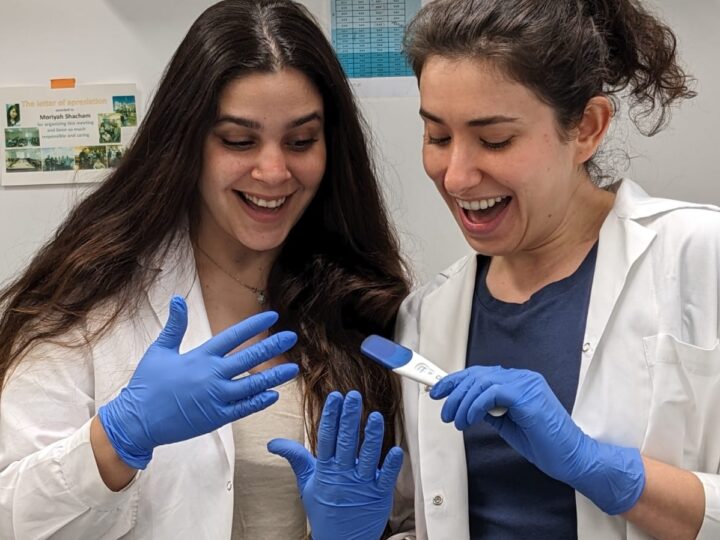Scientists in Israel report that they have found one of the possible primary causes of peripartum cardiomyopathy (PPCM), a rare form of heart failure that can affect women in their last month of pregnancy and up to five months after giving birth.
PPCM can be difficult to detect because its symptoms — swelling in the feet and legs and shortness of breath — mimic many of those of third-trimester pregnancy. And its incidence varies widely among geographic regions.
In the United States, PPCM strikes in approximately 1 in 4,000 live births while in Japan it’s 1 in 6,000. In Haiti and Nigeria, PPCM happens much more frequently; in northern Nigeria the figure is estimated at 1 in 100.
The disease, which can be fatal, is little understood.
A study published in the American Heart Association journal Circulation on December 3, 2018 by researchers in Israel reveals that one possible cause of PPCM is a functional defect in the heart cells of the new mother.
“It was previously suggested that levels of STAT3, an essential protective protein involved in cellular response to stress, were abnormally low in the heart cells of PPCM patients,” said Prof. Jonathan Leor, who led the study with Dr. Nili Naftali-Shani, his colleague at the Cardiovascular Research Institute at Tel Aviv University’s Sackler School of Medicine and Sheba Medical Center.
“This triggered a biological process that ultimately sliced the lactation hormone prolactin, creating toxic products that cause the disease,” Leor continued. “But we found that levels of the STAT3 protein were in fact higher in the heart cells of women with PPCM than in those of healthy women.”
The team then discovered that the underlying mechanism involved in PPCM is a heart-cell defect characterized by an impaired release of growth factors that regulate blood vessel formation or factors that activate the immune system.
The researchers say their discovery calls into question the medical justification for treating women with PPCM with bromocriptine, a drug used to treat symptoms of hyperprolactinemia (high levels of prolactin), which has serious adverse effects.
“Our future challenge will be to explore the exact molecular defect in heart cells of women with PPCM and to determine a new target for prevention and therapy,” Leor said.
Using a new genetic engineering technique
Another significant aspect of the study was the use of a cutting-edge genetic engineering technique pioneered in stem-cell research that led to a Nobel Prize for a British and a Japanese researcher in 2012.
Naftali-Shani used this method to produce stem cells and beating heart cells from the skin cells of PPCM patients and healthy controls. These cells are what proved that the accepted theory was incorrect.
“This is the first time that this technique was used to study the mechanism of PPCM,” Naftali-Shani said. “The myocardial cells produced from the stem cells of the patients had functional defects that caused them to secrete inflammatory proteins and a protein that inhibits the formation of blood vessels in the muscle, even without stress.
“We hope that this discovery will pave the way for early diagnoses and new, effective prevention and treatments.”
The research was done in collaboration with Dr. Natali Molotski, Dr. Uri Amit, Li-at Zeltzer and Alina Levich, all of TAU and Sheba; Prof. Michael Arad and Dr. Rafael Kuperstein, Dr. Yael Nevo-Caspi, Haya Abbas and Prof. Gidi Paret of Sheba Medical Center; Dr. Irit Huber of the Technion–Israel Institute of Technology; and Dr. Lorenzo Monserrat of Coruña, Spain.

















